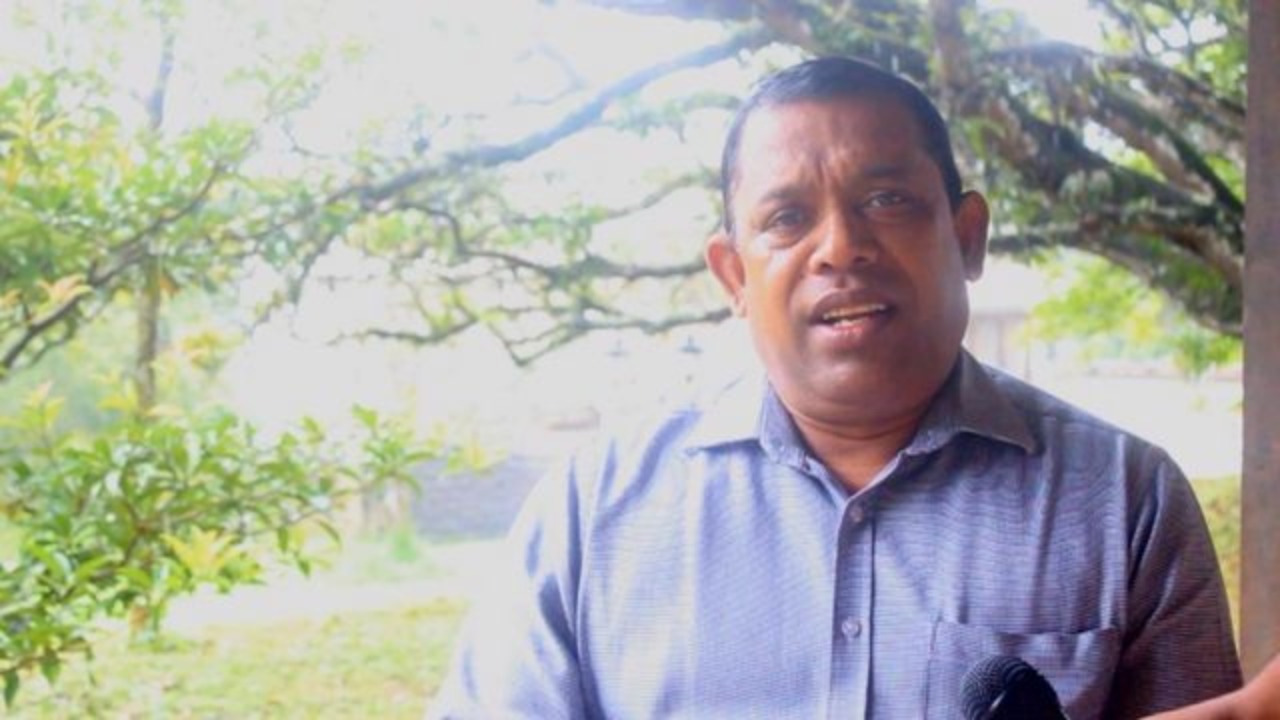-By a Special Correspondent

(Lanka-e-News - 21.Oct.2025, 6.00 AM) A scandal is brewing at one of Sri Lanka’s most respected universities — the University of Peradeniya — where allegations of unlawful admissions, favouritism, and administrative manipulation have tainted the Faculty of Arts’ special degree selection process.
According to inside sources and leaked documents, students were allegedly chosen for the Education Department’s Special Degree not through the official academic criteria, but through what insiders mockingly call an “Ammata Siri” (Mother’s Blessing) system — a Sinhala euphemism for nepotism and insider favours.
Even more troubling, university authorities reportedly ignored the formal decision made to correct the wrongdoing, allowing the irregular selection to stand.
The Faculty of Arts at Peradeniya — one of the country’s oldest and most esteemed academic bodies — has long produced generations of intellectuals. Under the deanship of Professor Ekanayake, however, the faculty’s reputation has been increasingly marred by accusations of poor governance and political meddling.
Traditionally, students follow a clear path: complete three years of study for a general degree, or apply at the start of the second year for a special degree in their chosen discipline. Entry into the special degree is highly competitive, based on Grade Point Averages (GPA) and departmental merit.
Yet in recent years, the Education Department has become the most sought-after specialisation — largely because a degree in Education almost guarantees a teaching post or an easy entry into the public sector.
In 2024, the Faculty of Arts officially approved 75 students for the Education Special Degree based on GPA and first-year examination results. Those who made the cut celebrated their achievement.
But quietly, the list was expanded to 172 students — an inexplicable jump of nearly 100 additional names. Among them were students who had not met the academic threshold at all.
Insiders compare it to the political appointments of old — “when jobs were distributed to friends and loyalists.” The additional students were allegedly smuggled into the programme under departmental pressure and personal connections.
After widespread complaints from both students and staff, a faculty-level inquiry was launched. But, like many academic scandals in Sri Lanka, the findings vanished into the bureaucratic sand.
By 2025, new allegations surfaced. Having learned that the 75-student cap could not be officially exceeded again, academic officers devised a new method — introducing face-to-face interviews to select the same number of students, effectively giving them a chance to handpick their preferred candidates.
This, insiders say, was the “Ammata Siri” method at its most blatant — a system of academic theatre where decisions were prearranged, but legitimised through an invented process.
“This wasn’t a selection. It was a puppet show,” said one senior lecturer who spoke on condition of anonymity.
These interviews had no Senate approval, no Faculty Board endorsement, and bypassed the University Council’s formal process — a direct violation of university regulations.
A student who was unfairly denied entry lodged a complaint with the University Grants Commission (UGC). Acting Vice-Chancellor Professor Ranjith Pallegama, serving in the absence of Vice-Chancellor Prof. Madujith, immediately appointed an internal committee.
The committee found that the Education Department had indeed violated procedure, confirming that the selection process was unlawful and recommending corrective action.
But the “correction” never happened.
By this time, classes for the special degree were already underway — taught, ironically, by the very same lecturers who orchestrated the irregular selection. The faculty leadership, including Head of Department Dr. Walter Seneviratne, found themselves unable or unwilling to reverse the decision.
“They were trapped by their own scheme,” remarked one senior academic. “Once the lectures began, it became a question of saving face — not fixing the fraud.”
The Lanka e-News investigations team has submitted a list of formal questions — and challenges — to Dean Professor Ekanayake and Head of Department Dr. Seneviratne, demanding accountability and transparency over the scandal. Among them:
Who authorised the expansion from 75 to 173 students in 2024, and where are the official records?
How many unqualified students were admitted, and why?
Were any of these students politically affiliated or connected to faculty members?
Was the irregular intake a deliberate attempt to weaken student protests against faculty management?
Who proposed the “interview” method in 2025, and where are the minutes of approval?
What criteria were used in the interviews, and who sat on the selection panel?
Why was the official UGC correction order ignored?
Will the faculty admit that injustice has occurred for two consecutive years?
Perhaps the deepest irony is that this misconduct occurred within the Department of Education itself — the very body tasked with producing ethical teachers and scholars. Many of its current staff, according to former colleagues, began their careers as schoolteachers and later climbed into university posts, carrying the same small-minded politics and schoolyard loyalties that plague the system.
One former lecturer, now working in a national education reform committee, lamented:
“How can we expect the next generation of teachers to be honest, when their lecturers teach them corruption as a subject?”
The UGC has yet to take disciplinary action, but there is growing pressure from student unions and academic watchdogs for a COPE-style parliamentary inquiry into the conduct of the Faculty of Arts.
The scandal has now become symbolic of a larger malaise in Sri Lanka’s higher education — a culture of “my list, my students” that threatens to undermine the credibility of entire degree programmes.
-By a Special Correspondent
---------------------------
by (2025-10-21 00:24:17)
Leave a Reply